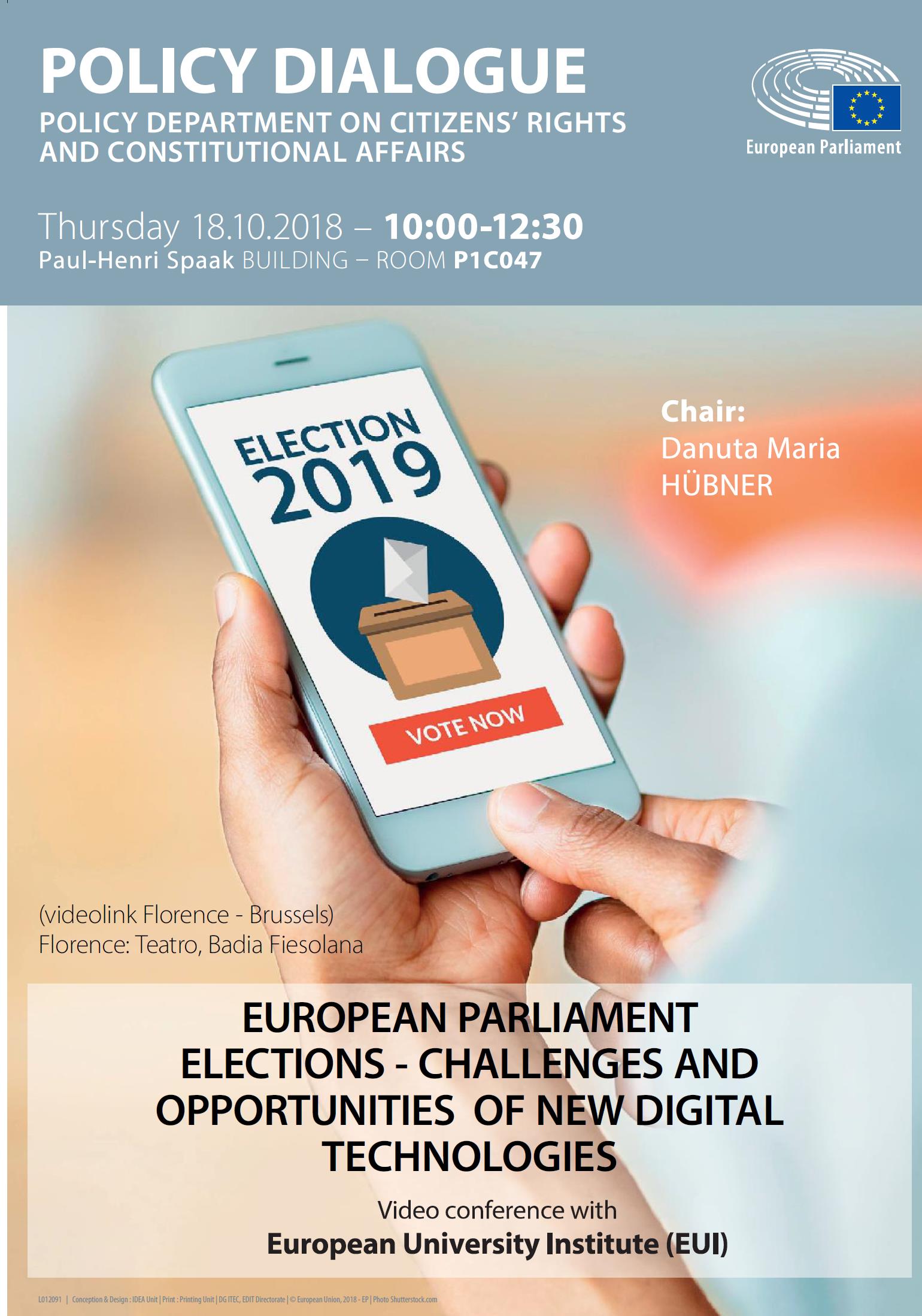EUROPEAN PARLIAMENT ELECTIONS - CHALLENGES AND OPPORTUNITIES OF NEW DIGITAL TECHNOLOGIES
In Ocotober 18 2018 Dino Pedreschi took part in the Policy Dialogue with European University Institute
on “EUROPEAN PARLIAMENT ELECTIONS - CHALLENGES AND OPPORTUNITIES OF NEW DIGITAL TECHNOLOGIES”
The joint EP - EUI Policy Dialogue- on the upcoming Elections 2019, jointly organised by Policy Department on Citizens’ Rights and Constitutional Affairs and the European University Institute (EUI) intends to bring together Members of the European Parliament and staff with academics from the European University Institute, Florence via video-conference between Florence and Brussels.
The intervening academic experts have done important research in the last few years on the impact of informational tools on their users in the context of democratic elections. With back-up from Social and Political Science trends have been identified concerning possible information biases from new digital technologies as well as new technological opportunities to improve election campaigns. On the one hand, wide amount of readily available information provided has shown to contribute to reducing costs involved in gathering relevant political information for citizens. Available evidence also supports the idea that artificial intelligence, technological opportunities and new social media platforms can increase interest in, and knowledge of political matters, possibly creating better turnouts for elections as a result.
However, recent popular vote in Europe and the US has higlighted the possibilities of an impact on democratic elections as to the result of the popular vote (trends in recent elections 2016-2018 such as U.S. elections and Brexit referendum).
In view of the upcoming European elections of 23 - 26 May 2019, the experts invited will present some aspects of their research on the topic over the last years.
This “Policy Dialogue” therefore will give opportunity to discuss the challenges amongst Academics, politicians and involved staff, with some conclusions as to sentiments of European voters.

